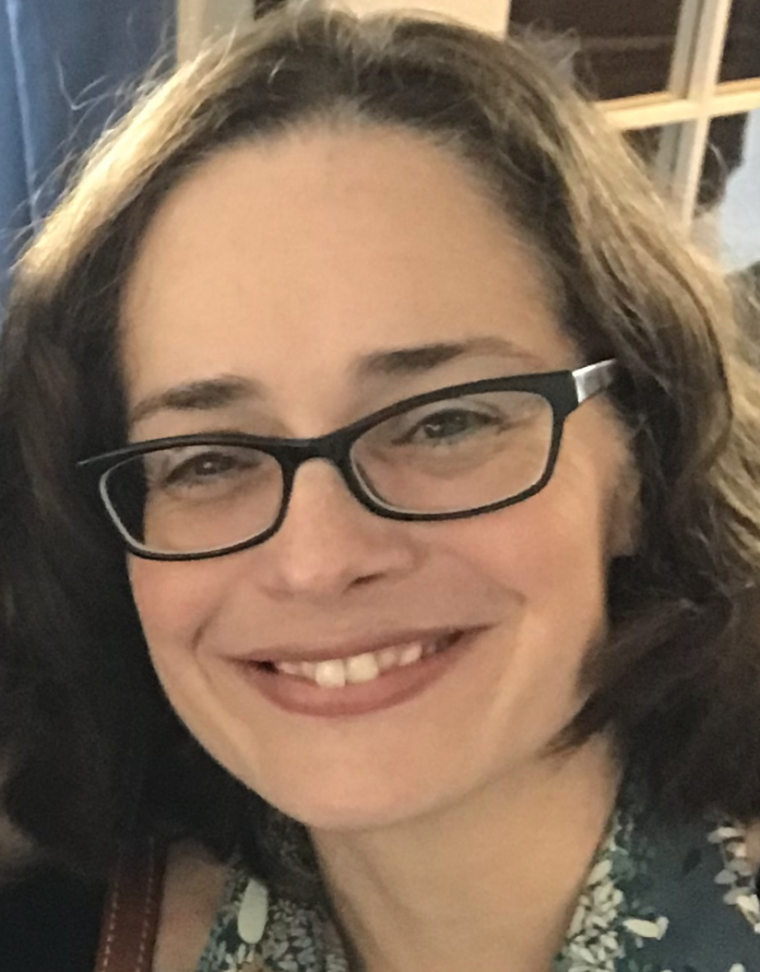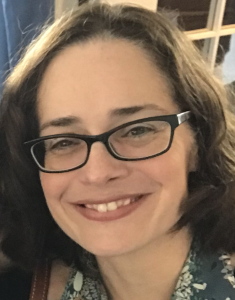Ryan’s Courses Teach Effective Communication with Diverse Audiences


Sarah Ryan is Wesleyan’s first associate professor of the practice in oral communication. She is an interdisciplinary scholar and attorney whose research explores public deliberation, civic participation, and criminal justice reform. We spoke to her about her distinctive interdisciplinary background and why learning communication skills is important for students’ future success.
Your position, associate professor of the practice in oral communication, is a new one at Wesleyan. Can you please explain the genesis of this position, and what it adds to the Wesleyan curriculum?
Sarah Ryan: In 2017, Wesleyan received a Davis Educational Foundation grant to create a regional consortium on best practices in the teaching of oral communication skills. Discussions during that initial one-year planning grant led to the development of my position. I was hired in 2019 to teach undergraduate courses in oral communication and to serve as a resource to faculty and staff who want to teach debate, group discussion, interpersonal communication, public speaking, etc.
What did you teach this past year?
SR: This past year, I taught [courses titled] Diffusion of Innovation, Communicate for Good, and From Litigation to Restorative Justice. In Diffusion, students learned how to spread pro-social practices and technologies through planned communication. In Communicate for Good, students learned how to promote public good through storytelling, informational messaging, and persuasion. In From Litigation, students learned to negotiate for their own interests and collective gain.
You have quite an interesting background as an interdisciplinary scholar and attorney. Can you fill us in on your career path?
SR: As an undergrad at Capital University, I joined the debate team. My first topic was “more severe punishment for violent crime.” To win debates, we had to research policy, law, and ethics, and develop recommendations for change. I was hooked immediately. After graduation, I became an assistant debate coach and started graduate school at Ohio University. My master’s and doctoral work were on welfare policy and perceptions of women receiving government assistance.
One summer, I taught at a high school debate camp in Vermont and became close with my debaters. They urged me to come to their tournaments. They debated for the New York Urban Debate League (NYUDL). So, my college debaters and I started driving to New York City to NYUDL tournaments. Two years later, the NYUDL needed someone to run its after-school center. I landed the job, promised my PhD advisor that I would write a dissertation someday, and moved to the Bronx. During my time at the center, my students won the state championships and we traveled to Belarus on an international debate exchange. On the side, I wrote a public affairs curriculum for Baruch College.
When funding for my center ended, I wrote a dissertation and got a teaching job at Baruch. I taught courses in public affairs, including one with Peter F. Vallone, Sr., New York City Council’s inaugural speaker. Three years in, some other debate friends called. They said I would love teaching with them at the University of Texas at El Paso. I did. But, by our second year in Texas, my East Coast in-laws were declining. Yale was close to them, and the law library needed a specialist to consult on study design, help find data, and teach basic statistics workshops.
At Yale, I worked on policing, housing segregation, and government accountability studies. I wanted to learn more. So, with the support of my bosses, I worked during the day and went to Quinnipiac University School of Law (QUSL) at night.
At QUSL, I assisted with an amicus curiae brief for a transgender employment discrimination case, helped New Haven residents file temporary restraining orders, and worked in the veterans clinic. My hope was to graduate and immediately teach, but my mentors urged me to practice law. So, I joined Connecticut Veterans Legal Center and represented veterans recovering from homelessness and mental illness. Then, I clerked for Hon. Victor A. Bolden, a federal district court judge.
In 2019, I was hired by Wesleyan. Now, I teach interdisciplinary oral advocacy and social change courses. My current research is on severe punishment for drug crimes.
You continue to work as a practicing attorney in Connecticut, in addition to your teaching. What kind of law are you currently practicing?
SR: I am a volunteer attorney for Connecticut Veterans Legal Center. I am one of few attorneys nationwide with expertise in “discharge upgrades.” I write briefs for military discharge review boards to argue for changes to veterans’ exit statuses (for example, an other-than-honorable discharge). For most of my clients, a traumatic in-service event caused PTSD that led to an addiction issue and derailed their career. I argue that the military didn’t recognize their struggle, didn’t provide them required mental health interventions, and unjustly discharged them with a status that prevents them from seeking VA mental health benefits.
You’re teaching a Calderwood Seminar this fall focused on legal advocacy for disabled veterans. How does this connect to your legal practice, and what will students be learning?
SR: This fall, I will represent two Connecticut Veterans Legal Center clients. The veterans have agreed to share their medical and personnel files with my Calderwood students, including grand court martial transcripts. My students will be writing short articles for public audiences.
The students have a monumental task ahead. On the legal side, they have to learn about Department of Defense policies, the Uniform Code of Military Justice, and service branch personnel actions. They have to consider what disability means in the context of war zones, traumatic brain injuries, and drug addiction. And the students have to write captivating op-eds, blog posts, and other 500–1,000-word pieces. Because this is an oral communication class, they will also be recording speeches, including podcast introductions. The Calderwood curriculum, developed at Wellesley College, requires weekly assignments, peer editing, and group critique sessions. Our classroom will be a writers’ room. By the end of the semester, our class will produce more than 70 short writings and recordings on legal advocacy for disabled veterans. This work will inform how I convey my clients’ stories to the military boards.
How do you think these types of communication courses enrich students’ education and benefit them after graduation?
SR: Communication courses help students to effectively convey their ideas to diverse audiences. Some of the lessons are simple: Your thesis and purpose are not always synonymous, you must establish credibility early, people will adopt your ideas if they seem logical and beneficial to them, etc. But the courses go deeper. In Diffusion, for instance, we reviewed 100 years of interdisciplinary research on how humans spread new technologies and behaviors. Students had to identify a social good that was not spreading quickly enough through U.S. society and develop a strategy for speeding its adoption. They presented their ideas every week, as we tend to do in communication courses.
Students leave these courses with new knowledge, skills, and confidence. Post-graduation, students will have an intellectual foundation in how information is spread and received by others, an ethical framework for the impact of words on people’s lives, and skills for fostering change.
Is there anything else you want readers to know?
SR: I spent my childhood summers traveling with the carnival. I have three-year-old twins.

